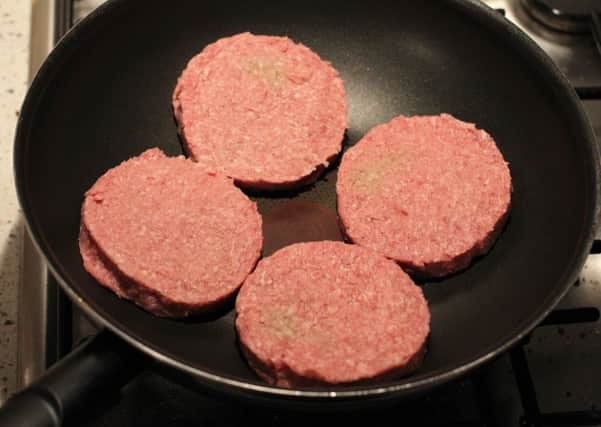‘Food crime network’ to guard against new horsemeat scandal


Professor Chris Elliott is calling for a “robust, effective” Food Crime Unit to protect the industry and consumers from criminal activity and support better links with food crime agencies across the EU and beyond.
And he said consumers must be put first by ensuring that their needs in relation to food safety and food crime prevention are the “top priority”.
Advertisement
Hide AdAdvertisement
Hide AdProf Elliott said the UK food industry was “very competitive and there is a constant drive to reduce costs and maximise profits”, adding: “Consumers are reliant on the leadership, good intentions and good practices of those who supply food and regulate it. Consumers expect government and industry to provide a food system which is safe, resilient and free from criminal interference.
“Consumers must be able to trust that the food they consume is what it claims to be.”
He said that while all consumers were at risk from food fraud, lower income groups spent a higher proportion of their income on food, particularly processed foods, which were more susceptible to fraud.
He said: “Some consumers are at risk if they have to rely on others for food preparation, such as those in care homes, or hospitals.
Advertisement
Hide AdAdvertisement
Hide Ad“Recent surveys by local authorities such as Leicester City Council, West Yorkshire, North Yorkshire and West Sussex, and the consumer organisation Which? have shown that consumers using fast food outlets in inner city areas are often buying food which is not what it claims to be.
“In some cases the evidence suggests that problems arose because of unintentional labelling mistakes, but there is a concern that other fast food outlets may have been sourcing cheaper meat which increased the risk of food fraud. “
Professor Elliott said buying policies, particularly within some of the larger retailers, were “a matter of concern”.
He said: “The review cautions against procurement of goods for less than the recognised reasonable price, based on market knowledge.
Advertisement
Hide AdAdvertisement
Hide Ad“This is neither good for the sustainability of UK farming nor the integrity of the food industry and ultimately impacts negatively on consumers.”
He issued a stern warning that it was the responsibility of retailers to provide evidence that they had checked the background of any products bought for well below the recognised market price.
The report, commissioned by the Department for Environment, Food and Rural Affairs and the Department of Health, was in response to the horsemeat scandal that first began to unfold in January last year, when it emerged that frozen burgers supplied to several supermarkets including Tesco contained horse DNA.
Investigations found other beef products sold by retailers including lasagne and spaghetti bolognese were contaminated, while meals in schools and hospitals had to be withdrawn after it was found they contained horse meat.
Advertisement
Hide AdAdvertisement
Hide AdEnvironment Secretary Elizabeth Truss said the Government accepted all of the report’s recommendations.
She said: “We’re taking action to make sure that families can have absolute confidence in the food that they buy. When a shopper picks something up from a supermarket shelf it should be exactly what it says on the label, and we’ll crack down on food fraudsters trying to con British consumers.”